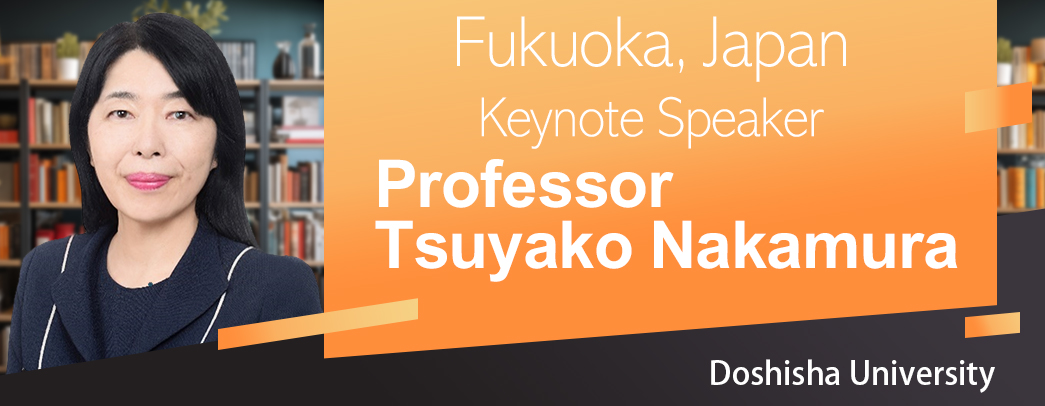
Introduction:
Tsuyako Nakamura is a professor at the Faculty of Global Communications of Doshisha University. Her specialty is women’s labor issues in the U.S. and Japan. Currently, she is researching work-life integration and employment policy for women's advancement with Grant-in-Aid for Scientific Research from the Japan Society for the Promotion of Science (JSPS). Her major publications include co-authored books, Work-Life Integration (2021), Human Resource Management in the Era of EVP (Employee Value Proposition) (2018), Work-life Balance and Management (2017) and Creating Gender Equal Workplace (2004). She finished her Ph.D. course at Doshisha University after obtaining M.A. at Monterey Institute of International Studies in California as a Rotary International student. She was a Fulbright Visiting Scholar at Stanford University and Harvard University in 2009-2010. She has been active for social leadership programs including TOMODACHI MetLife Women’s Leadership Program as the first-year mentor/chaperone (2013), and Kansai Economic Federation's women's empowerment program as coordinator (2014-2023). From June 2021 to August 2024, she served as president of the Japan Academy of Labor Management.
The Gender Gap and Women’s Advancement:
A Case Study to Promote Women’s Empowerment in Japan
This study examines the current state of the gender gap and the progress of gender diversity management aimed at enhancing women’s empowerment in Japan. As global competition intensifies, securing a competent and diverse workforce has become crucial. Since around 2013, women's empowerment has been a key focus in Japan, recognized as an urgent national policy by both the former Abe and Kishida administrations, which pursued similar objectives to revitalize the country.
Despite gradual progress, the empowerment of Japanese women remains stagnant compared to global standards. According to the Gender Gap Index (GGI) published by the World Economic Forum (WEF), Japan ranked 118th out of 146 countries as of 2024. This research is based on a case study of gender gap experiences in Japan in 2024 and features participants from U.S. government programs, including the International Visitor Leadership Program (IVLP) and the TOMODACHI MetLife Women’s Leadership Program (TMWLP).
Findings from alumni of these programs highlight several differences in gender diversity management between Japan and the United States. Key findings include the importance of diversity management to mitigate "unconscious bias," the necessity of career development support to address the "mother penalty" faced by women raising children, and the need for workplace and government support through work-integration policies. Participation in these programs has empowered alumni to become social "catalysts" and role models within their Japanese communities.





